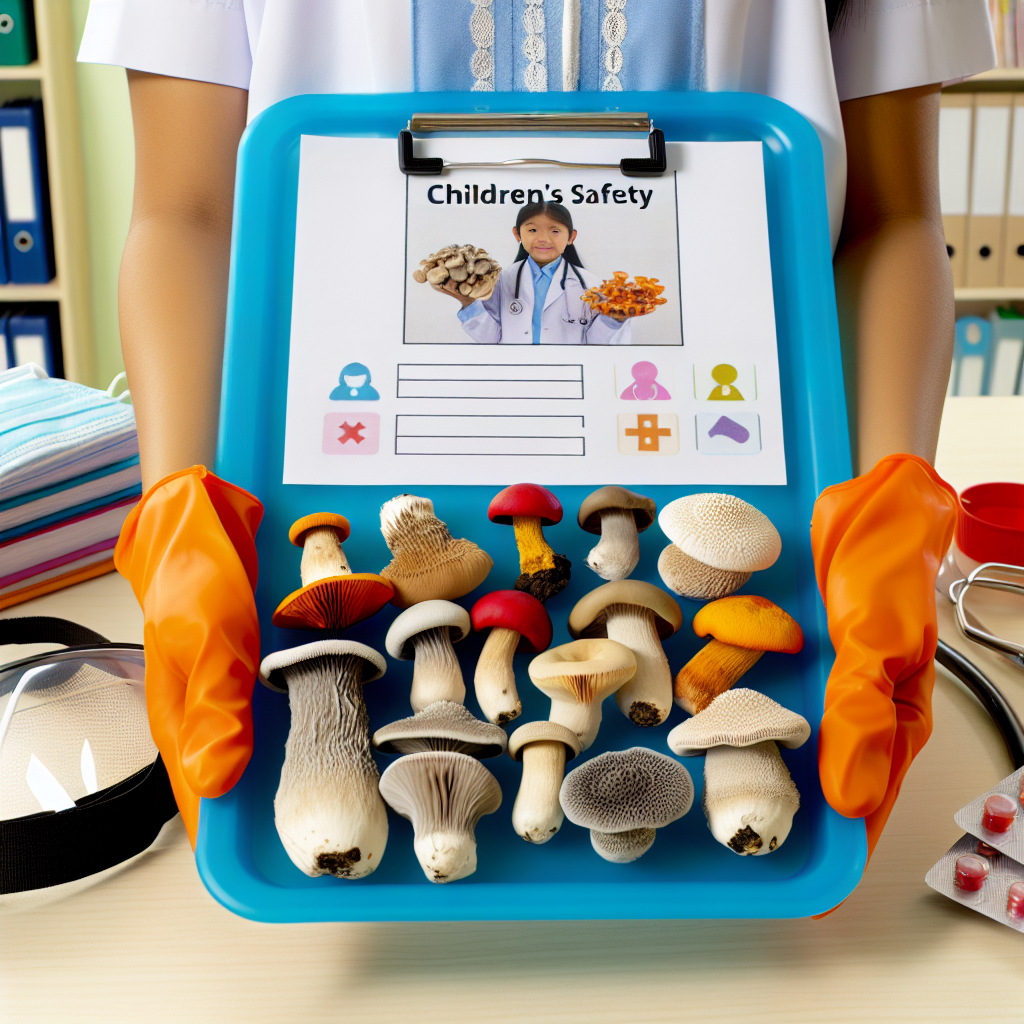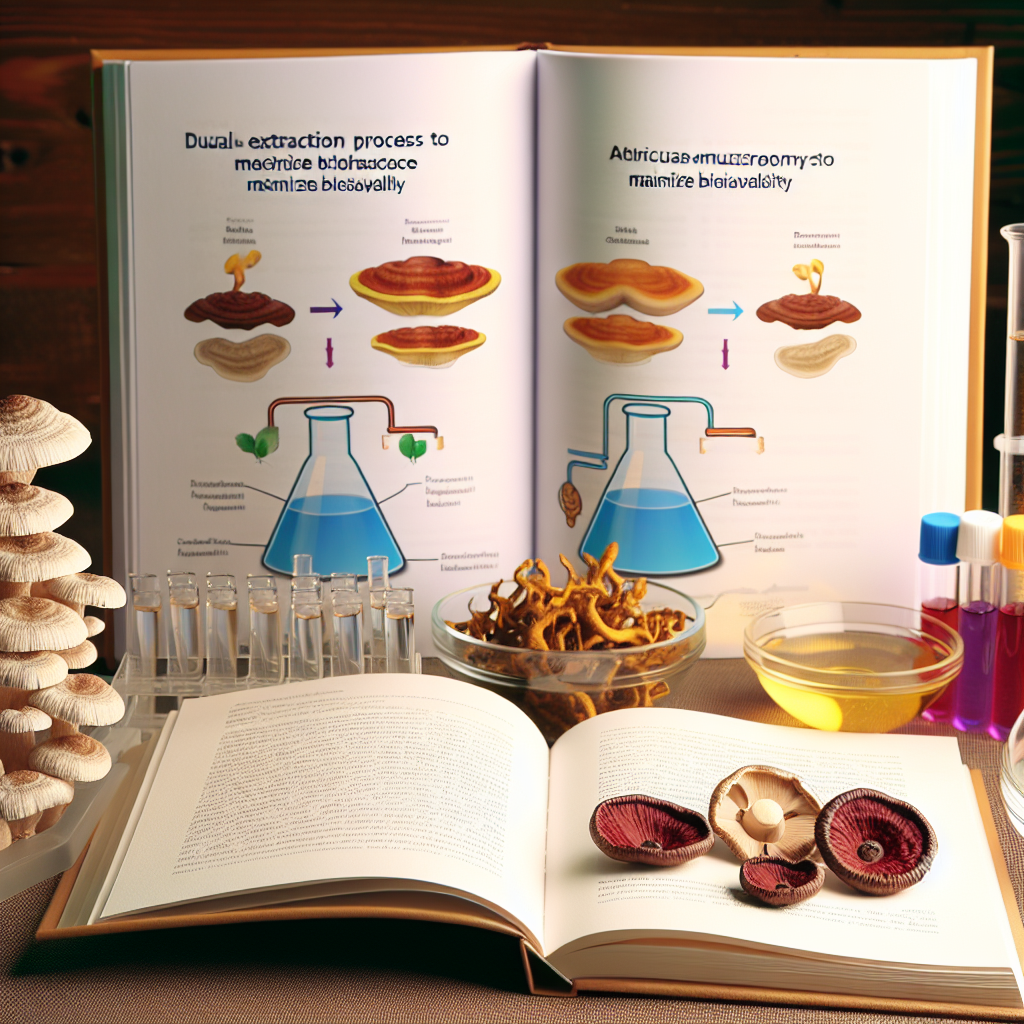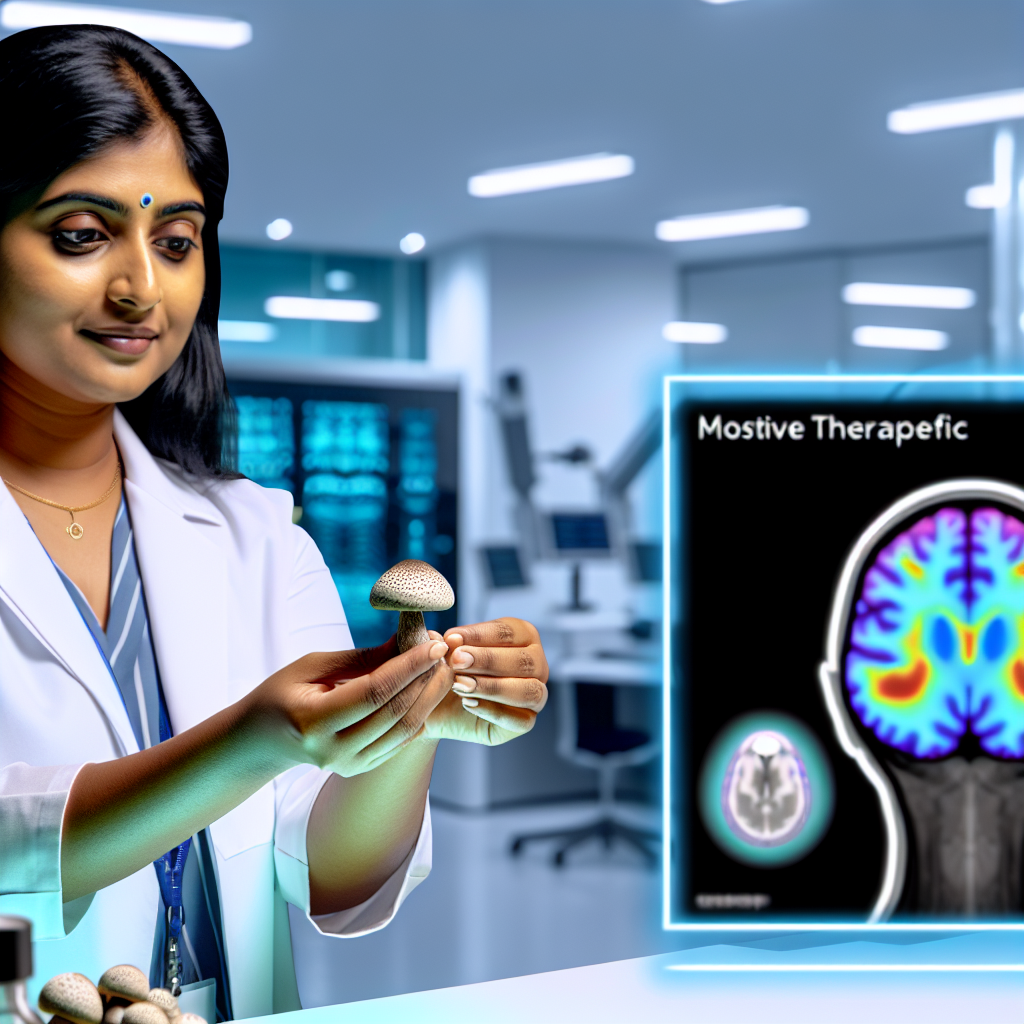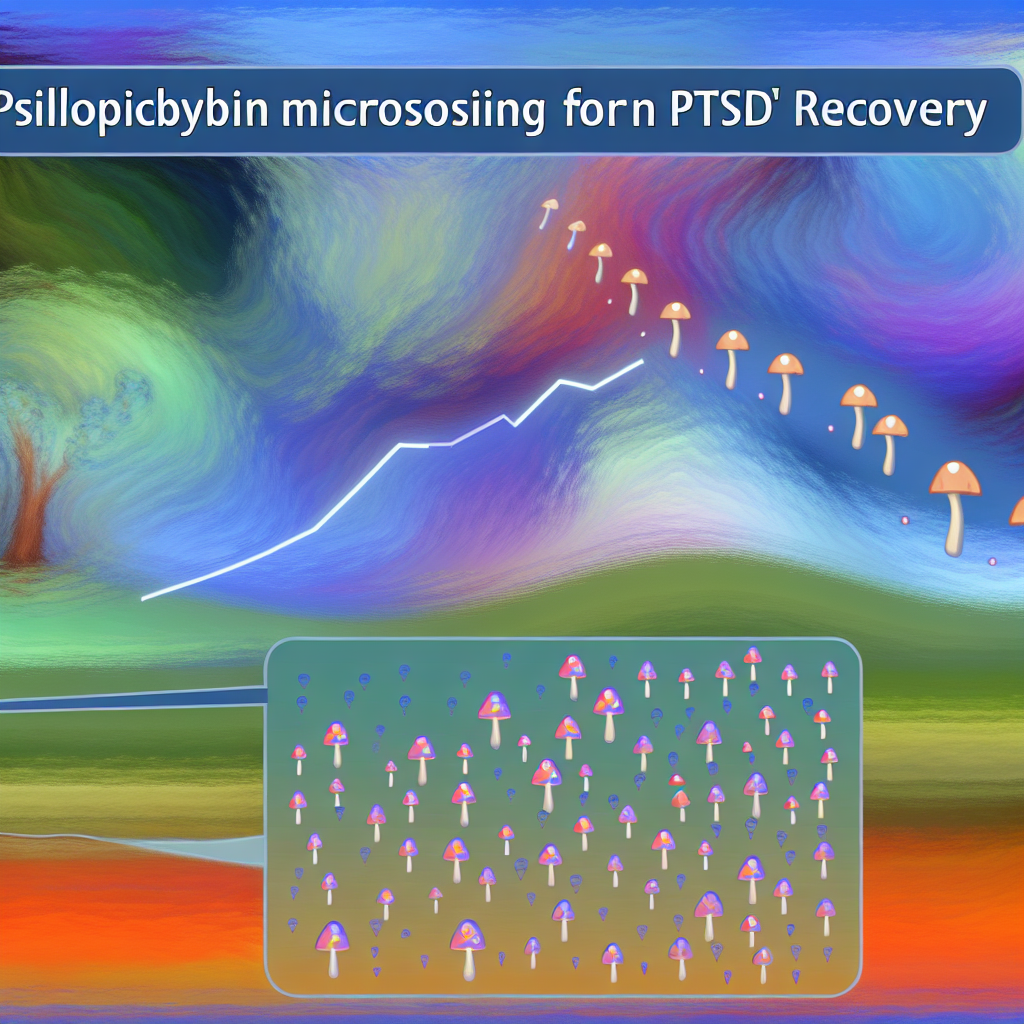Pediatric Safety Protocols for Non-Psychoactive Medicinal Mushrooms
Introduction
In recent years, the global spotlight has turned toward the therapeutic potential of medicinal mushrooms. While psychedelic strains like *Psilocybe cubensis* have drawn substantial media attention, non-psychoactive medicinal mushrooms such as reishi (*Ganoderma lucidum*), lion’s mane (*Hericium erinaceus*), turkey tail (*Trametes versicolor*), and chaga (*Inonotus obliquus*) offer compelling natural treatment options without the mind-altering effects. These functional mushrooms have long been used in traditional Eastern medicine and are now gaining momentum in evidence-based Western health care. They are known for their antioxidant, immunomodulatory, anti-inflammatory, and neuroprotective properties.
As more families integrate natural health approaches into their daily lives, interest in the pediatric application of non-psychoactive medicinal mushrooms has surged. Parents are seeking complementary therapies that support immunity, cognitive function, and general well-being in their children—especially following the challenges posed by modern stressors, environmental toxins, and the post-pandemic landscape affecting child development.
However, children are physiologically different from adults. Their developing organs, immune systems, and metabolic processes require careful consideration when introducing new supplements. Despite the promising health benefits, the use of functional mushrooms in pediatric populations must be approached cautiously and responsibly. Understanding dosages, sourcing, preparation methods, and potential interactions with conventional medications is essential for ensuring safety and efficacy.
Some of the leading concerns include allergic reactions, gastrointestinal sensitivity, and standardization of mushroom extracts. Furthermore, with the rise of nutraceutical-grade and unregulated mushroom supplements, parents must navigate a crowded market of products that vary greatly in purity, potency, and labeling accuracy.
Establishing pediatric safety protocols can provide a trusted framework for integrating non-psychoactive medicinal mushrooms into children’s health routines. These protocols include age-appropriate dosing guidelines, sourcing criteria, preparation techniques, risk assessments, and inclusion of pediatricians or integrative health practitioners in the decision-making process.
This article explores the current scientific data and clinical viewpoints that shape these safety protocols. We aim to educate caregivers and health professionals about evidence-based strategies for safely using non-psychoactive medicinal mushrooms in children’s health—enabling informed decisions and holistic health outcomes for young patients.
The Science of Mushrooms for Kids: What We Know So Far
Scientific interest in medicinal mushrooms, particularly in their application to pediatric and family health, is increasing. These fungi contain beta-glucans, polysaccharides, ergothioneine, and other compounds that interact with the human immune system in adaptogenic ways. While formal pediatric studies are currently limited, several adult-based studies offer insights into their potential benefits and mechanisms of action, which may be cautiously extrapolated to younger populations under supervision.
Immune Boosting Power: Beta-Glucans in Action
Beta-glucans, found abundantly in reishi, shiitake, and turkey tail mushrooms, are well-studied immune modulators. A 2012 clinical review published in the *Journal of Medicinal Food* demonstrated that beta-glucans can enhance the activity of macrophages and natural killer (NK) cells, playing a critical role in strengthening host defenses ([source](https://pubmed.ncbi.nlm.nih.gov/22530951/)).
While most of these trials are based on adult subjects, the immunomodulatory effects could be beneficial to children, particularly those with frequent respiratory infections or weakened immune systems. Pediatric dosing would need to be adjusted accordingly and guided by a healthcare provider.
Enhancing Young Minds: Lion’s Mane and Brain Health
Lion’s mane mushroom has shown success in promoting nerve growth factor (NGF) synthesis, which supports cognitive development and neuronal health. One 2020 study in *Biomedical Research* demonstrated cognitive improvement in older adults with mild cognitive impairment after consuming *Hericium erinaceus* for several weeks ([source](https://pubmed.ncbi.nlm.nih.gov/26282062/)).
While the study did not include children, the neuroregenerative effects suggest potential as a supportive tool for children with attention-deficit disorders or developmental delays. Pediatric application requires further research but offers a promising avenue.
Fighting Inflammation Naturally: Antioxidant Effects of Chaga and Reishi
Chaga and reishi mushrooms are rich in antioxidants, which help fight systemic oxidative stress. One in vitro study published in *Phytochemistry* outlined chaga’s potent free-radical scavenging properties ([source](https://pubmed.ncbi.nlm.nih.gov/19426674/)).
Although dosing for children must be significantly adjusted and approached with caution, the safety profile of chaga in adult trials and centuries of traditional use provide a foundation for expanded pediatric investigations into inflammation-mediated conditions and general wellness support.
Understanding Safety: What Parents Need to Know
While high-dose extracts or prolonged use should be avoided without medical supervision, most non-psychoactive medicinal mushrooms exhibit low toxicity. In a 2015 risk assessment published in *Toxicology Reports*, reishi mushrooms showed no serious adverse effects at standard dietary levels ([source](https://pubmed.ncbi.nlm.nih.gov/26579493/)). However, mild side effects such as digestive upset have been noted, especially in sensitive populations.
For pediatric use, protocols recommend starting with food-based forms rather than extracts, using minimal effective doses, and observing for reactions over a 3–5 day period. Parent or clinician oversight is critical during this observation window. Consultation with integrative pediatricians can also help ensure compatibility with existing medications or conditions.
It is essential to ensure products are:
– Third-party tested for quality
– Certified organic
– Free from heavy metals and additives
Such criteria reduce potential risk in vulnerable pediatric populations and support responsible integration into a child’s wellness routine.
Conclusion: Moving Toward Integrative Pediatric Wellness
Non-psychoactive medicinal mushrooms represent a valuable addition to pediatric integrative care when used responsibly. By establishing clear safety protocols and consulting knowledgeable healthcare providers, parents can explore the gentle, supportive benefits of therapeutic mushrooms for immune health, cognitive function, and overall well-being in children.
Continued research and professional guidance will be crucial for advancing the safe integration of these ancient remedies into modern family health practices.
References
1. Immune-supportive effects of beta-glucans: https://pubmed.ncbi.nlm.nih.gov/22530951/
2. Lion’s mane and cognitive function study: https://pubmed.ncbi.nlm.nih.gov/26282062/
3. Antioxidant effects of chaga mushroom: https://pubmed.ncbi.nlm.nih.gov/19426674/
4. Safety assessment on reishi mushroom: https://pubmed.ncbi.nlm.nih.gov/26579493/
Concise Summary:
This article explores the potential benefits and safety protocols for using non-psychoactive medicinal mushrooms in pediatric populations. It discusses the scientific research on the immune-boosting, cognitive-enhancing, and anti-inflammatory properties of mushrooms like reishi, lion’s mane, and chaga. The article also highlights the importance of responsible dosing, sourcing, and clinician guidance to ensure the safe integration of these natural remedies into children’s health routines.

Dominic E. is a passionate filmmaker navigating the exciting intersection of art and science. By day, he delves into the complexities of the human body as a full-time medical writer, meticulously translating intricate medical concepts into accessible and engaging narratives. By night, he explores the boundless realm of cinematic storytelling, crafting narratives that evoke emotion and challenge perspectives. Film Student and Full-time Medical Writer for ContentVendor.com




